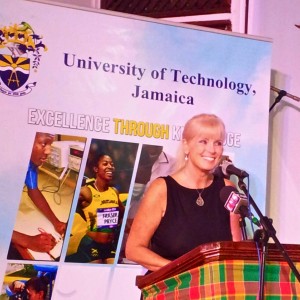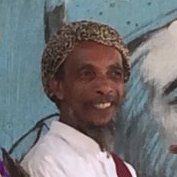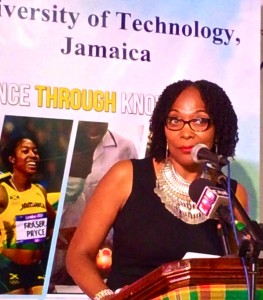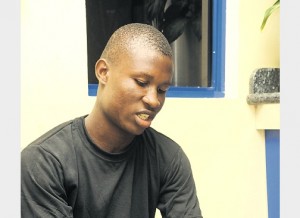
The Ubuntu Essence of Humanity Awards: We Are All Connected
December 12th, 2015
The ringing sound of drums drew me towards the auditorium where a special event was about to begin. This was no ordinary award ceremony; we have plenty of those throughout the year. This celebration held a special energy, coming from a very sad place – a candle in the dark, perhaps. And it was a fitting occasion for International Human Rights Day 2015.
The University of Technology’s (UTech) second annual Ubuntu Essence of Humanity Awards are a perfect example of something true and sincere emerging from a harmful and dangerous incident. The good emerged, redemption-style, from an almost nightmarish attack on a student on campus just over three years ago. The student and another – accused of engaging in gay sex in a bathroom – had been chased by an angry crowd (including students) into a room, where one was beaten by a security guard; other guards watched, and the crowd egged him on. The incident was caught on video and the recording was shared widely in local and international media. It was a shameful episode that reflected badly on UTech, of course – but beyond that, on Jamaican society. It also reinforced the island’s image (which it retains to this day) of being a “homophobic country.” Something had gone badly wrong.
However, UTech did not throw up its hands. It did not sit down and wait for the controversy to blow over. It did not carry on as usual. The college administrators, lecturers and students began some serious soul-searching. Then they took action. With support from the European Union in Jamaica and USAID, UTech almost immediately launched the UTech Cares project, a campus-wide human rights awareness program fostering the principles of respect, tolerance and compassion. Now, in May of this year UTech signed a co-operative agreement with USAID to provide grant funding for a three-year social intervention project – at the national level – called Fi Wi Jamaica. It is directed by Vice President of Community Service and Development Professor Rosalea Hamilton. This project targets specific groups who are especially vulnerable in the context of human rights: women, girls and disabled people from inner-city and rural communities who are at risk of abuse at home, and in the case of women and girls to being trafficked; adolescent girls in secondary eduction; young people at tertiary level; and the homeless, including gay and transgender youth.

USAID Jamaica’s Director Dr. Denise Herbol called up some vivid memories of her service as a U.S. Peace Corps Volunteer in Zaire (now the Democratic Republic of Congo) – sleeping in an old mission house with unidentified wild animals in the roof! Dr. Herbol has just six months left at the end of a four-year stay in Jamaica. (My photo)
The project’s proactive strategies are to encourage evidence-based (that’s important) dialogue to influence national policy and programs, while building public awareness of the need for change; strengthening access to social services for the most vulnerable; combating intimate partner violence and trafficking in persons, while empowering women and girls through partnerships; and using popular culture to create that transformational space.
But let’s double check: Do we all know the meaning of Ubuntu? One of my all-time personal heroes, Archbishop Desmond Tutu, popularized this African (Nguni Bantu) philosophy, not long after the end of apartheid in his country. He observed: “Ubuntu is very difficult to render into a Western language. It speaks of the very essence of being human. When we want to give high praise to someone we say, ‘Yu, u nobunto’; ‘Hey so-and-so has ubuntu.’ Then you are generous, you are hospitable, you are friendly and caring and compassionate. You share what you have. It is to say, ‘My humanity is inextricably bound up in yours.’ We belong in a bundle of life.”

Michael Grizzle is Chief of the Flagstaff Trelawny Town Maroons, who is seeking to develop eco-tourism and sustainable community development. He is one of the five who received Certificates at the Ubuntu Awards.
Simply put, “I am what I am because we are” is how participants described Ubuntu at the awards ceremony. Those who received certificates (the Mocho Citizens’ Association, Michael Grizzle, Vivien Morris-Brown, Dorett Thaxter and George Young), and those who received trophies (the Rev. Fr. Sean Major-Campbell and Maria Carla Gullotta) have expressed that spirit in a variety of ways. Rev. Major-Campbell (who held a special service at his Vineyard Town church last Sunday) is a ground-breaking man of faith, who has openly and deliberately embraced many of those rejected by society – in particular, the LGBT community. He puts Ubuntu into practice. So does Ms. Gullotta, who could have stayed happily in her beautiful seaside home in Portland, but as an Amnesty International representative established Stand Up for Jamaica, designing meaningful rehabilitation programs for maximum security prisoners. With support from the European Union, Ms. Gullotta has been able to expand the program. Both these individuals work hard to support the human rights of all Jamaicans, especially those who are on the margins, forgotten and ignored.
A young man called Jabari Williams also came up for special recognition. Jabari, a downtown resident, found $100,000 in a bag in his community and returned it to the man who had lost it. Of course, he did the right thing, despite his own family’s difficult financial circumstances.

Here’s the kind of empowering work The ASHE Company does: A musical summer school (their 20th) – this year a production called “HUSH” on The Rights of the Child. Director Conroy Wilson is pictured in this photograph from ASHE’s website.
Last but not least… I must give a whole lot of “honorable mentions” to The ASHE Company, a remarkable performing arts company that has always maintained the highest standards – not only in its memorable song, dance and music. It embodies the spirit of freedom and it teaches valuable lessons (through its “edutainment” pieces) on almost every social issue affecting Jamaica, in an upward trajectory. ASHE’s performance of “Soul Song” was a bit of a tour de force – a bluesy, jazzy, slightly rambling praise-song of freedom. Congratulations to them for the good work they consistently do.
Respect. Kindness. Dignity. Security. Freedom from discrimination. All wrapped up in one word, this is the humanity in Ubuntu.
Tags: Archbishop Desmond Tutu, children's rights, Denise Herbol, European Union, Fi Wi Jamaica, human rights, International Human Rights Day, Jabari Williams, LGBT community, Maria Carla Gullotta, Michael Grizzle, Rev. Sean Major-Campbell, Rosalea Hamilton, South Africa, Stand Up for Jamaica, The ASHE Company, Ubuntu, Ubuntu Awards, University of Technology, USAID, UTech Cares
The Gleaner reserves the right not to publish comments that may be deemed libelous, derogatory or indecent.
To respond to The Gleaner please use the feedback form.
- We Are the Zoomers
- Living Online with Humans and Birds: NAOC 2020
- Human Trafficking and the Problem of Public Education
- Down Memory Lane
- Are We Ready to Recover from COVID-19?
- Road Safety Matters: Is Your Vehicle Safe?
- Sexual Harassment, Me Too, and the Minister’s Disturbing Giggle
- The Vulnerable Senior Citizens, Private Care Homes and COVID-19
- A Muddle Over Masks
- Here is Something Life-Saving You Can Do: Give Blood!




